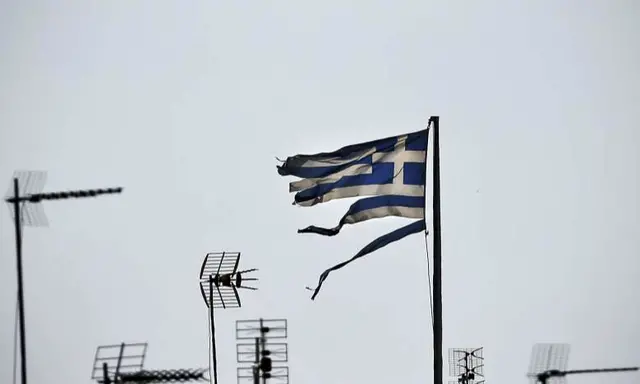Greece may have passed a milestone and its bond market has been lucrative for some investors, but the road to recovery doesn't look much shorter.
The yield on Greek 10-year bonds fell below 7 per cent - the threshold where countries were forced to seek aid during the European debt crisis - for the first time since November after creditors agreed to release 10.3 billion euros (S$15.8 billion) and pledged to reduce the debt burden down the line.
Greece has delivered the highest returns of all euro region sovereign debt tracked by Bloomberg's World Bond Indexes this year.
The question is whether the nation and its economy can endure yet another squeeze. While the latest deal avoids another summer standoff over finances, austerity measures equal to 3 per cent of gross domestic product will kick in from June, further dampening economic activity in a country where almost a quarter of the workforce is without a job.
"We have a short-term fix, but not a long term solution," said Mr Marius Daheim, a senior rates strategist at SEB AB in Frankfurt. "We are going to be confronted with another crisis, perhaps not within the next three to six months, but surely at the latest in 2018 when the adjustment program is over."
In the meantime, the yield on Greek notes due in July 2017, one of the flagship bonds in a market where trading is a tiny fraction of what it was before the crisis hit in 2010, dropped 83 basis points to 7.46 per cent on Wednesday (May 25) and earlier fell to as low as 6.62 per cent. Greek bonds have returned 12 per cent this year, according to Bloomberg World Bond Indexes, though scant liquidity and low ratings mean many investors don't buy them.
Credit-default swaps on Greece fell to the lowest level since December 2014, according to data provider CMA. Based on the cost of insuring the country's bonds for five years, there's still a 43 per cent chance of default. That compares, though, with about 90 per cent last year when Prime Minister Alexis Tsipras sought to renegotiate the terms of Greece's bailout with the euro region and the International Monetary Fund.
"It seems like all sides - Athens, Brussels and the IMF - are pulling together to come up with a plan," said Mr Orlando Green, a rates strategist at Credit Agricole's corporate and investment-banking unit in London. "It bodes well for the bailout going forward."
The yield on 10-year bonds is still above the 5.5 per cent it touched in September 2014. That was before Mr Tsipras and his Syriza party came to power and as the previous New Democracy government was even talking about selling more debt.
Since then, last year's stalemate over further financial aid, capital controls to keep money in the country and ultimately a capitulation to creditor demands have taken their toll. That makes picking the right time to sell before economic realities come back to haunt Greek markets even tougher.
There's also the prospect of Greek bonds being included in the European Central Bank's 80-billion-euro monthly bond-buying programme, which has pushed yields in other so-called peripheral euro countries to lows. The conclusion of the bailout review this week was one of the main conditions along with a debt sustainability analysis by the ECB.
It makes it unlikely that Greece would profit from the quantitative-easing programme before autumn, Mr Wolfango Piccoli, an analyst at Teneo Intelligence, said in a note to clients.
But the bottom line is that Greece can't repay all the interest and principle back on its loans, billionaire investor Wilbur Ross said in a Bloomberg television interview.
"It's a charade and like all charades eventually somebody figures out what is inside," he said.
(BLOOMBERG)
 简体中文
简体中文

